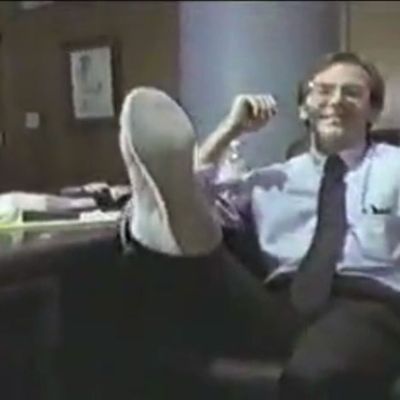
Wall Street history buffs have been granted a gift by the Internet gods: the unearthing of Trader, a 25-year-old documentary about Paul Tudor Jones II, the brains behind Tudor Investment Corp. and founder of the Robin Hood Foundation, who has since become a billionaire and a hedge fund legend.
The film originally aired on PBS in 1987, then vanished when Jones hated it and reportedly bought up every VHS copy he could find. It has periodically resurfaced on the web for an hour or two at a time before being pulled down again. This latest incarnation (which was spotted by Business Insider) has been up for three months, meaning either that Jones has had a change of heart or his lawyer has been in Sag Harbor all summer.
I’d never seen Trader before. But after watching it yesterday, I think it may be the urtext of modern Wall Street, an essential tool for decoding the culture of finance and understanding the changes it’s undergone since the crisis of 2008.
Trader shows Jones as a 32-year-old trader in the early days of his career, doing all the things you’d expect a guy in his position to do — yelling at his pit traders, skiing in Gstaad, high-fiving colleagues after making $5 million on a currency trade. Jones’s character type — a brash, ballsy, silver-tongued Wall Street gunner — would become familiar in later years, with the publication of Bonfire of the Vanities and Liar’s Poker and the release of Oliver Stone’s Wall Street. But Trader represents the archetype in its purest form.
The movie introduces Jones on the cusp of his best call ever: a successful prediction that the stock market would be decimated in 1987. And if you were so inclined (and some are), you could view it as a 55-minute long-short trading seminar. Jones explains the Elliott Wave theory, discusses his forex strategy, and talks about the traits he looks for in a successful trader.
But it’s worth watching purely as a cultural relic. If you don’t have time to watch all 55:34, go ahead and skip directly to these scenes:
2:45- PTJ barely avoids getting pancaked on a busy Manhattan street. To celebrate, he then whips out the world’s oldest cell phone.
8:18- PTJ gets off the phone with a guy he’s fooled on a huge oil futures trade and tosses off a devastating wink. He also uses the phrase “wild-as-shit Arab.”
15:18- Peter Borish, Tudor Investment Corp.’s 27-year-old chief economist and PTJ’s right-hand man, displays a charming bit of youthful naïveté when asked what he’s going to do if the stock market does actually collapse and his trading thesis proves correct: “If we’re successful here … I want to go work for the Treasury or the the State Department or the Fed to help us out of what I consider to be dire economic consequences.” (You’ll be shocked to know that since leaving Tudor, Borish has not in fact saved the world, but has run a bunch of other hedge funds.)
30:30- PTJ reveals his secret rally routine, which consists of (a) slipping on his lucky shoes, a pair of sneakers he bought at a charity auction that once belonged to Bruce Willis (quoth PTJ: “The man’s a stud”), and (b) putting a giant inflatable T-Rex on top of his trading terminal to “ward off every bear on Wall Street back into their dens.”
38:30- When said rally routine fails to produce a rally, PTJ calculates that he lost 5 percent on the day, then looks longingly at the cake box on his desk.
42:55- “His weekend home has eighteen rooms and a staff of three. Paul lives there alone.”
43:28- On a visit to a group of disadvantaged kids that he sponsors as part of his charity efforts, PTJ is ambushed by a little girl in a red sweater and a headband who Just. Will. Not. Let. Go.
48:30- Learning that he’s made a bunch of money on a good trading day, PTJ exclaims “SWHAAAAAIT.” (sp?)
It’s hard not to feel, while watching Trader, that today’s financial industry is a middling bore by comparison. A hedge funder whose day used to consist of donning lucky shoes, loading up on index futures, and praying for a rally now likely spends more of his time dealing with compliance officers, calming jittery investors, and filling out reams of Dodd-Frank paperwork. And a trader who said “wild-as-shit Arab” during an on-camera interview in 2012 would likely find himself in a serious meeting with HR.
The relative banality of post-crisis Wall Street is a good thing for everyone — taxpayers, regulators, the economy at large. And it could even work to the industry’s benefit, if it ever decided it wanted to reform its cowboy image. (I’ve always thought, for example, that Bain Capital should let a TV crew inside the firm’s offices to show private equity at its scandal-free best. See, we’re not heartless, conniving vultures! We’re boring office drones, just like you!)
But that same banality, which still cloaks an industry full of not-so-boring scandals, is probably a disappointment for traders who grew up idolizing Paul Tudor Jones, and wishing they, too, could one day scream “QUOTE ME!” into a phone while wearing a banker’s collar and wire-rimmed glasses.





























